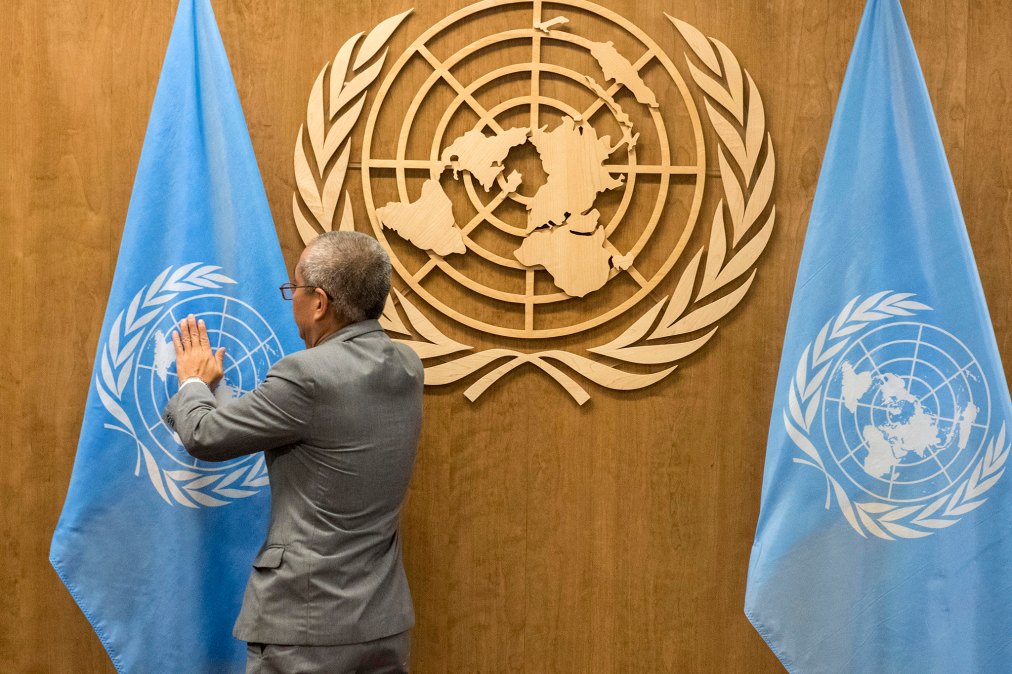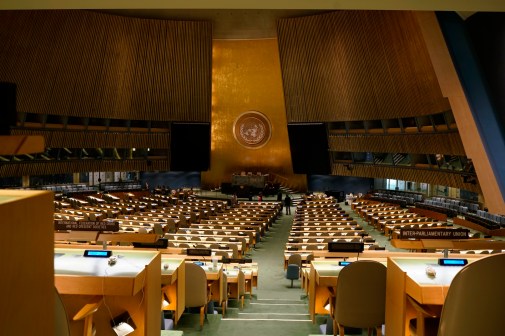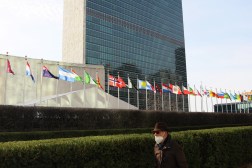The U.N. passed a resolution that gives Russia greater influence over internet norms

A cybercrime-focused resolution backed by Russia passed Monday in the United Nations, despite calls from the U.S. that the measure would further hamper efforts to root out crime on the internet.
The resolution, which passed 88-58 with 34 abstentions, aims to establish a group to examine cybercrime and set up a convention to prevent it. However, human rights groups have argued that the resolution is actually an effort by the Kremlin to expand its model of state-backed internet control.
In particular, the resolution calls for a check on the “use of information and communications technologies for criminal purposes.” Which activities it aims to curb exactly is unclear.
Thirty-six rights groups argue in a letter that the resolution is so vague that it could lead to the criminalization of ordinary online activities that journalists, human rights groups, and other members of civil society rely on, such as using encrypted chat applications.
The resolution could also “give wide-ranging power to governments to block websites deemed critical of the authorities, or even entire networks, applications and services that facilitate online exchange of and access to information,” the coalition of organizations, which includes the Electronic Frontier Foundation, writes in its appeal.
The proposal passed Monday aims to create a new global treaty that Russia views as more “inclusive” and respectful of countries’ sovereignty, a Russian representative said Monday in New York.
In a speech before the vote, a U.S. representative said it is “disappointed with the sponsors” of the proposal, noting it thinks the “divisive and non-inclusive” proposal “will only serve to stifle global efforts to combat cybercrime.”
The resolution is the latest Russian effort at the U.N. level to influence global behavior norms in cyberspace. The U.S. opposed establishing a Russian- and Chinese-backed U.N. group on cyber norms last year. However, the “Open Ended Working Group,” broadly seen as a counter to a longstanding U.S.-run cyber norms group, passed the General Assembly as well.
The Russians have repeatedly claimed they see the parallel groups as complementary. However, others see the effort as a Russian campaign to delay U.S. consensus-building in the cyber norms space.
The latest Russian proposal also aligns with Russia’s recently enacted “sovereign internet” law, which, in theory, will allow the Kremlin to disconnect its internet from the rest of the world. The law, which went into effect earlier this month, also pushes ISPs to install software that allows the government to track and filter internet traffic, raising concerns among human rights groups that it will contribute to the Russian government’s control over the internet and ability to quash dissenting voices online.
An international standard on cybercrime, known as the Budapest Convention, was ratified by 64 member nations in 2001. But Russia, along with China, were not among the members who voted for it.
Monday’s resolution was also sponsored by China, Cuba, North Korea, Nicaragua, Syria, Venezuela, and 39 other countries, according to the U.N. General Assembly Third Committee Chair Christian Braun.
Read the proposal here:
[documentcloud url=”http://www.documentcloud.org/documents/6552366-UNGA-Russian-Cybercrime-Proposal.html” responsive=true]





